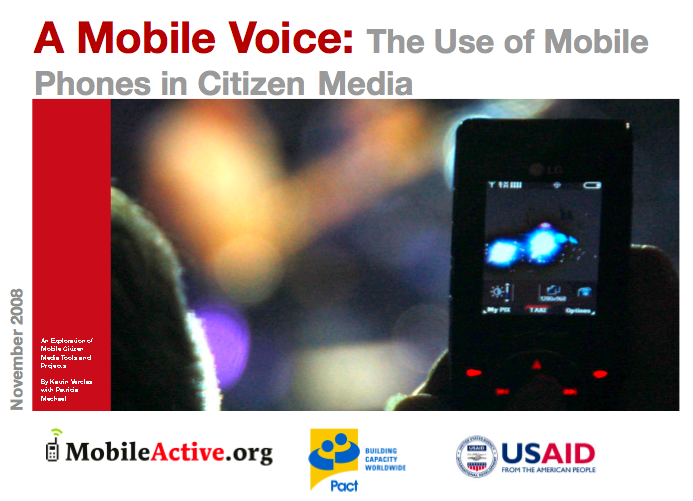MobileActive.org
Sign Up For Newsletter
The Tool in Your Hand: The Mobile Revolution
activism
advocacy
africa
aids
cell phone
citizen journalism
citizen media
developing countries
development
election
environment
fundraising
Greenpeace
health
hiv
human rights
india
kenya
mobile
mobile active
mobileactive
mobileactive08
mobile activism
mobile advocacy
mobile applications
mobile campaign
mobile democracy
mobile fundraising
mobile marketing
mobile phone
mobile phones
mobiles
ringtones
sms
sms and politics
sms campaign
sms mobilization
South Africa
technology
video



